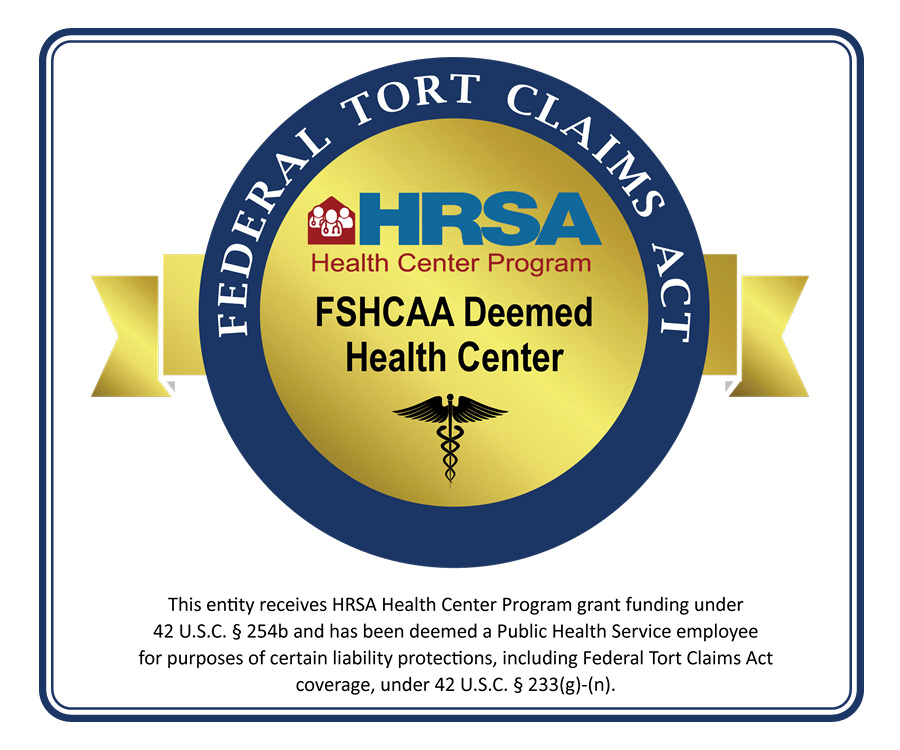With Missouri Highlands OB/GYN & Pediatrics, you can trust that your family’s health is in good hands. Our friendly staff and experienced providers are committed to delivering personalized, compassionate care for women and children in a convenient, single location.
At Missouri Highlands OB/GYN & Pediatrics, we are dedicated to providing comprehensive, compassionate care for women and children under one roof. Our newly combined clinic, located at 2879 James Blvd, Poplar Bluff, MO, offers a seamless healthcare experience for families, ensuring quality care close to home.
Obstetrics & Gynecology
Our OB/GYN services are designed to improve the health care of women from the first visit of an adolescent girl to the care of a menopausal woman and everything in between. Our experienced and dedicated team offers a wide range of services, including:
Pediatrics
Parents want the best care for their kids, and at Missouri Highlands OB/GYN & Pediatrics, we provide the quality care that parents are looking for. We start seeing children as newborns and continue their care with annual well-child exams as they grow, ensuring that every child receives the comprehensive care they need throughout their development.

Are you ready to embark on the incredible journey of parenthood? Don’t miss out on the essential knowledge and support you need for a successful breastfeeding experience! Join our upcoming Lactation Classes and empower yourself with invaluable information
Call our office at (573) 609-8800 during normal business hours. For questions after hours, we suggest contacting Labor & Delivery at (573) 776-9693. Labor & Delivery is staffed 24/7 with nurses who are qualified to address most of your questions and concerns. They also have the ability to contact our providers.
The first provider visit will include a review of history, risk factors, expectation of prenatal care, physical examination, lab and ultrasound. Please feel free to make a list of any questions or concerns to discuss with the provider.
Subsequent visits always include weight, blood pressure and urine analysis (please don’t urinate just before your visit). After 12 weeks, fetal heart tones will be checked with every visit and after 18 weeks, uterine fundal measurements will take place.
During the course of your pregnancy, we expect to manage your total care. If you have problems or symptoms, such as; fever, rash, vomiting or respiratory infection – please contact us. Most likely, one of our providers will elect to see you in the office to manage the problem. Your visits are vitally important to the health of your baby and outcome of your pregnancy. Please make all attempts to attend your scheduled appointments and notify the office f you are unable to attend.
No one likes to wait for their appointment time. However, due to the nature of obstetrics, delayed wait times will sometimes occur. Our practice works hard to minimize wait times but we assure you that we do our utmost to provide conscientious care for each patient and we will give your visit the same careful attention others have received.
OB VISITS ARE MANAGED IN THE FOLLOWING ORDER:
We may deviate from this schedule if problems arise or a patient becomes high-risk.
In efforts to decrease wait times for scheduled appointments, messages for nurses and/or providers will be returned after clinic hours. If your message is urgent please let the receptionist know or go to Labor & Delivery if you are having an obstetrical emergency. If you are expecting a call about your results, those calls will also be placed during non-appointment clinic hours.
A full panel of initial screening labs is performed during your initial OB visit. Based on medical history or risk factors, additional labs may be necessary. Also, a pelvic examination and/or pap smear may be performed at the first provider visit.
Ask for additional information regarding these tests. Depending on each patient, additional labs may be necessary based on risk factors or complications.
It is reassuring to see your baby and to watch their movements and heartbeat. However, it is not feasible, nor advised, to perform an ultrasound at each office visit.
All ultrasound schedules are subject to change based on visualization at prior ultrasounds, complications of pregnancy or other medical reasons.
INITIAL ultrasound between weeks 7-12
This ultrasound looks for signs of pregnancy and is the most definitive ultrasound for accurate gestational age. It also provides a due date that will be used throughout your pregnancy. This will likely be the first glance you have of your baby’s heartbeat!
SECOND TRIMESTER ultrasound between weeks 20-22
This ultrasound is of vital importance. The baby is now reaching an age where measurements of growth can be obtained. In addition, organs have now formed and this ultrasound will look closely to detect any abnormalities that may be indicative of birth defects. This ultrasound usually takes around an hour.
COMPLIMENTARY gender scan ultrasound after week 15
If you wish to find out your baby’s gender alongside family and loved ones, simply notify the ultrasound technician and she will place the gender in a sealed envelope.
THIRD TRIMESTER ultrasound between weeks 30-36
This ultrasound is typically a follow-up for growth or features of the second trimester ultrasound that may not have been fully visualized. We may also order this ultrasound to ascertain the baby’s position in the uterus prior to delivery.
ACOG recommends vaccinations for Tdap after week 29. This is a combination vaccine for tetanus, diphtheria, and pertussis. It is mainly given for the pertussis component which is also known as “whooping cough”. Unfortunately, there has been a resurgence of pertussis in the United States and this can be deadly to newborns. This vaccination will protect both you and your baby.
Some patients will be given an Anti-D Immune Globulin (Rhogam) at 28 weeks if their blood type Rh factor is negative. This will be repeated again after delivery.
During influenza season, ACOG recommends a flu vaccination for all expectant mothers, as they are at higher risk for developing the flu and complications of it.
Missouri Highlands Health Care offers free lactation classes. Participants do not have to be Missouri Highlands Health Care patients to register for classes. The class will be geared toward the basics of breastfeeding and how to get breastfeeding off to a good start. View this schedule to see the times and dates CLASSES
Poplar Bluff Regional Medical Center offers a variety of childbirth and parenting classes to expectant and new parents. We recommend you attend the childbirth, breastfeeding and epidural classes after 30 weeks. We also recommend you attend the epidural class even if you do not think you will utilize the epidural for pain management, as we like you to have the option should you change your mind during labor.
As your due date approaches, you and your physician will need to discuss options for your birth. This will include the potential for complications, induction, cesarean section, episiotomy, labor pain management and vaginal birth after cesarean.
Please contact the office to discuss medication use during pregnancy.
Some medications may be harmful to your baby. Occasionally, medications are prescribed that may provide more benefit to the mother than the risk associated with their use, but this needs to be decided on an individual basis with the patient and provider.
OVER-THE-COUNTER MEDICATION LIST
If your symptoms persist after trying these medications, please feel free to contact our office or discuss at your next visit. We may choose to prescribe something to help with the problem.
Heartburn/ Acid Reflux
Antacids (Maalox, Tums, Rolaids, Mylanta) or OTC medication like Prilosec (Omeprazole) to control acid production
Nausea/ Vomiting
Doxylamine succinate (Unisom) 25mg at bedtime & vitamin B6 20-25mg three times a day (this regimen is intended to prevent nausea & vomiting)
Cough/cold
– Guaifenesin (Mucinex)
– Dextromethorphan (DM)-a cough suppressant found in many OTC products such as Tussin DM or Mucinex DM
Pain/ Headache
Acetaminophen (Tylenol)
Allergies
– Fluticasone (Flonase) nasal spray
– Diphenhydramine (Benadryl)- dose every 4-6 hours & may cause drowsiness
– Zyrtec, Allegra, Claritin: 24 hour anti-histamines which do not normally cause drowsiness
Vaginal Yeast Infections
OTC yeast treatments such as Monistat (avoid any one-day treatments)
Insomnia/ Difficulty Sleeping
– Diphenhydramine (Benadryl) 25mg one hour before bed
– Doxylamine succinate (Unisom) 25mg one hour before bed
Itching
Itch-X gel, Benadryl anti-itch cream, Hydrocortisone cream
Missouri Highlands Health Care is a Health Center Program grantee under 42 U.S.C. 254b, and a deemed Public Health Service employee under 42 U.S.C. 233(g)-(n). An FTCA deemed facility.
This health center receives HHS funding and has Federal Public Health Service (PHS) deemed status with respect to certain health or health-related claims, including medical malpractice claims, for itself and its covered individuals

centraloffice@mohigh.org
(573) 663-2313
Missouri Highlands Health Care
110 S. 2nd St
Ellington, MO 63638